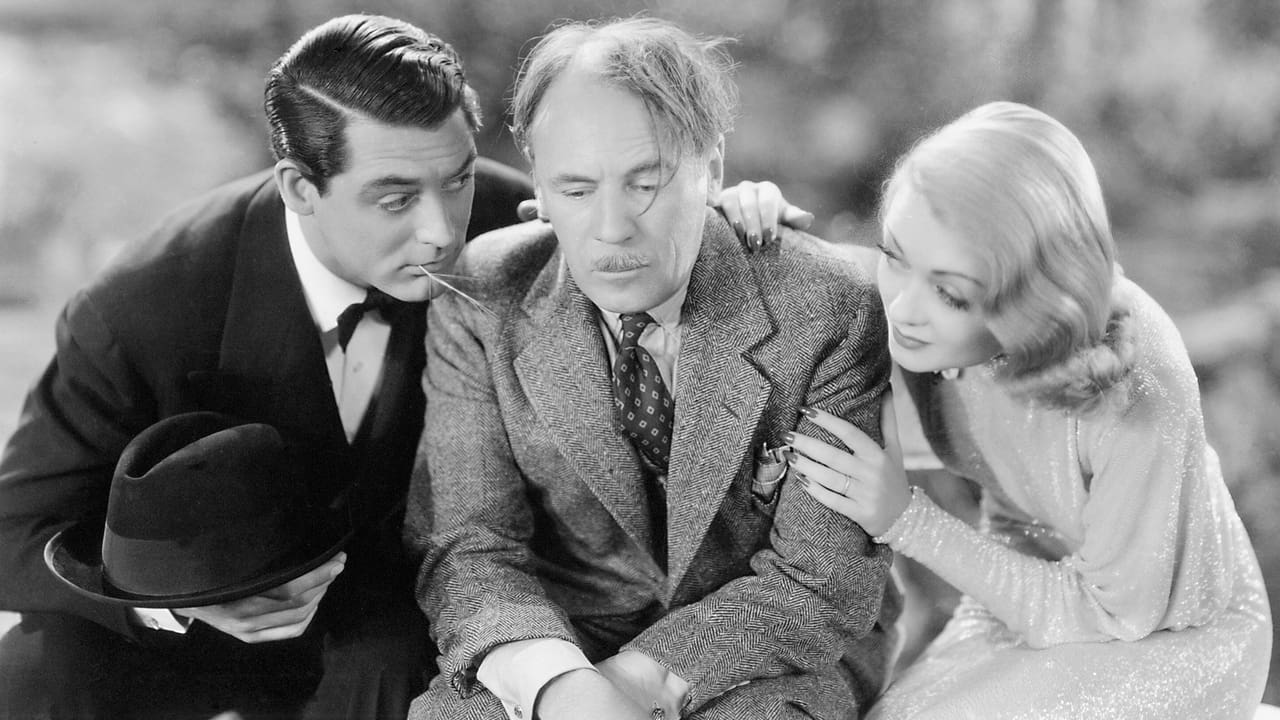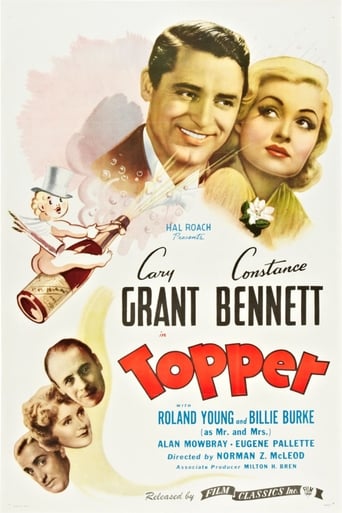



Dreadfully Boring
Entertaining from beginning to end, it maintains the spirit of the franchise while establishing it's own seal with a fun cast
View MoreClever and entertaining enough to recommend even to members of the 1%
View MoreThe movie's neither hopeful in contrived ways, nor hopeless in different contrived ways. Somehow it manages to be wonderful
View MoreAlthough the title role is played by Roland Young, the rest of the cast is made up of other quite famous stars and supporting actors and actresses of the period.Among the others is Cary Grant (no less) as George Kerby and Constance Bennett as his wife Marion, Arthur Lake,only a little pre-Dagwood Bumstead, Billie Burke (post-Ziegfeld but slightly pre-Wizard of Oz), the gravel-voiced Eugene Palette (("No son of mine", he even says something like it in the film.) Alan Mowbray (Hollywood's idea of a butler), Hedda Hopper as a society lady, an uncredited Hoagy Carmichael at the beginning of the film at the piano of course, and lots of others.The ghostly special effects are quite wonderful for the period and the Thorne Smith-based plot keeps things moving along nicely.Who could ask for anything more?
View MoreThis is one of the earliest films Hollywood made about ghosts that showed spirits after death. While the comedy is OK, the real stars of "Topper" are the artists behind the scenes who made the special effects work. In modern times, we are used to all kinds of special effects in films, as well as computer-generated imagery. But back in the 1930s – less than 10 years after film became wholly rounded with sound and video, special effects such as this must have truly amazed audiences. The quality is so good that it still comes across as real many decades later.Although Cary Grant was firmly established by this time, he took second billing to Constance Bennett. She was a star in her own right and had been around Hollywood a decade earlier than Grant. Hollywood also tended to tout its leading ladies above the men in those days.Anyway, Bennett and Grant are OK in this film as Marion and George Kerby. But their roles aren't particularly special – beyond being the means for much crafty special effects. The plot is quite simple. The script doesn't have a lot of punch or humor in the dialog. It has some, but nothing on the level movie buffs came to enjoy in most Grant films. The most enjoyable performances in the film are by Roland Young as Topper and Billie Burke as Mrs. Topper. A cast of very good supporting actors adds a little flavor.But for the special effects in this film, it wouldn't rate that high against other Grant and Bennet films of the 1930s and 1940s.
View MoreChampagne swilling Constance Bennett has been out all night partying with her husband (Cary Grant), and when he stops into the bank (but doesn't come back to their limousine right away), Bennett saunters right into the office of Cosmo Topper (Roland Young), with one of the clerks saying my above comment to a co-worker to hilarious delight. Marian and George Kirby are a fun-loving Nick and Nora type who probably couldn't hold down day jobs, but in spite of their free-for-all lifestyle, you can't help but love them. Tragedy occurs one day when the speeding George ends up crashing their car, killing them instantly. Having lead a frivolous life, they find that they are "left behind" and must perform some good deeds to move onto the after life. They are definitely not bad people, so it is obvious where they are going, but their mission on earth has not been completed, hence their remaining around in limbo.One day, naive Cosmo Topper crashes through the newly replaced fence which George and Marian had previously crashed through. "Would you take your hand off my wife's leg?", Grant's voice bellows to Young, sitting on a log, as he reappears so only Young can see him, soon afterwards followed by his wife. It comes their duty to help reconcile Cosmo and his suspicious, jealous wife (Billie Burke), and that's what occurs in the next 90 minutes as Grant and Bennett do their best to perform one good deed to move on. Special effects had been used in science fiction or fantasy movies before, but this was perhaps the first comedy to utilize it so wonderfully. Ironically, the very same year, Young had his own dramatic fantasy with "The Man Who Could Work Miracles", but his light-hearted character here is obviously having much more fun even though he's extremely perplexed by being befriended by two ghosts.The first of three "Topper" movies (and one of half a dozen pairings of Billie Burke and Roland Young as flibberty-gibbit spouses) is one of the classic screwball comedy's of all time. Grant and Bennett appear to be having a perfectly marvelous time as they seem more alive as ghosts than some live people do on a normal basis. However, it is Young's performance, reacting to everything around him, that wins attention here, with Burke a close second. She's not the bird-like stereotype that she would be in the last film or her many other roles (just see her in "Dinner at Eight" to see her being truly dramatic as a downright ridiculous woman), and for those who know her only from "The Wizard of Oz" will be delighted to see her out of her good witches' uniform and in some wonderful gowns. She has a great chemistry with droll Alan Mowbray who would play her butler and companion in the first two films. The screenplay is practically perfect, the art deco sets fantastic to look at, and the pace delightfully speedy.
View MoreEnjoyable fluff about a stuffy banker who loosens up a bit after meeting the freshly-minted ghosts of a couple of fun-loving bank stockholders. Grant and Bennett (in her most notable role) seem to be having fun as the ghostly couple who don't let death cramp their style and Young is perfectly cast in the title role of the banker. Burke, the good witch from "The Wizard of Oz," plays Topper's overbearing wife. The cast also features Palette as a hotel detective and Lake, who would go on to play Dagwood Bumstead in "Blondie" films, as an elevator boy. While the antics of the invisible ghosts lead to some amusing scenes, the film rarely rises above the level of a sitcom.
View More